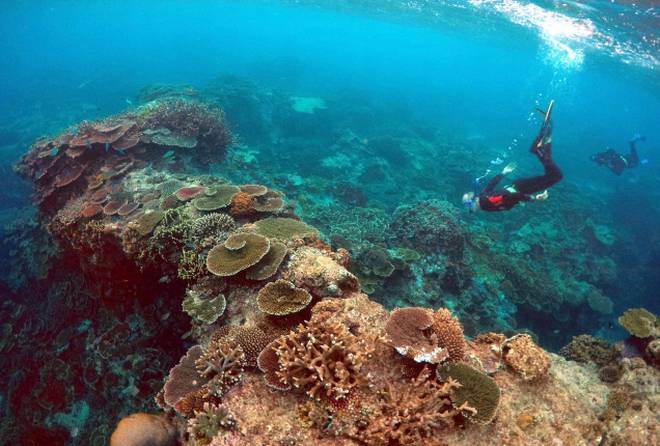Australia Downgrades Great Barrier Reef to 'Very Poor' Status | 31 Aug 2019
Australia has downgraded the Great Barrier Reef's long-term outlook to "Very Poor" for the first time.
- Coral along large swathes of the 2,300-kilometre reef have been killed by rising sea temperatures linked to climate change, leaving behind skeletal remains in a process known as coral bleaching.
Great Barrier Reef
- The Great Barrier Reef is the world’s largest coral reef system composed of over 2,900 individual reefs and 900 islands.
- The reef is located in the Coral Sea (North-East Coast), off the coast of Queensland, Australia.
- The Great Barrier Reef can be seen from outer space and is the world’s biggest single structure made by living organisms.
- This reef structure is composed of and built by billions of tiny organisms, known as coral polyps.
- It was selected as a World Heritage Site in 1981.
Implications of “Very Poor” Status
- The report published by The Great Barrier Reef Marine Park Authority-An Australian Agency will be a major input into UNESCO’s Committee.
- There are high chances that Great barrier reef to be considered for “ List of World Heritage in Danger”
World Heritage in Danger
- The List of World Heritage in Danger is designed to inform the international community of conditions which threaten the very characteristics for which a property was inscribed on the World Heritage List.
- It also encourages corrective action.
- Armed conflict and war, natural disasters, pollution, poaching, uncontrolled urbanization pose major problems to World Heritage sites.
- Dangers can be ‘ascertained’, referring to specific and proven imminent threats, or ‘potential’, when a property is faced with threats which could have negative effects on its World Heritage values.
